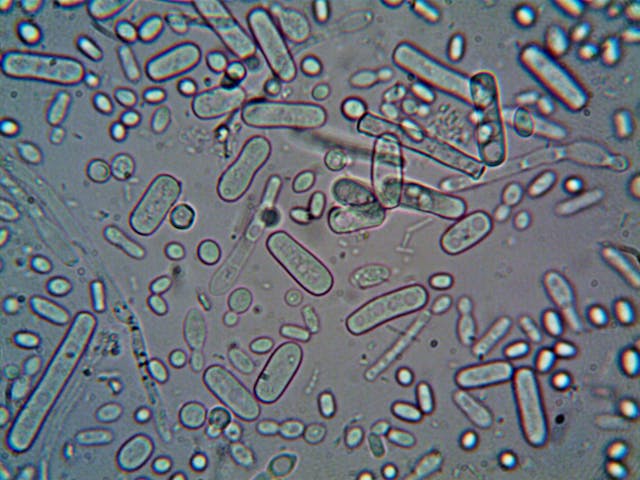
What is a superbug? A superbug are bacteria, viruses, or fungi that have developed resistance to many different types of drugs. We often hear about superbugs on the news. They wreak havoc on places like hospitals. They are very hard to deal with, and the people in the hospital usually have compromised immune systems, which makes things doubly worse.
Superbug is the name that the media has given to multidrug-resistant microbes. You have to admit, superbug is certainly more catchy. All viruses, bacteria, and fungi can develop resistance to drugs. If that happens, another drug can usually remove them successfully. Superbugs are organisms that have become resistant to many different kinds of drugs.
How does a bacteria or virus become immune to a drug? The types of drugs used to fight bacteria and viruses are not the same, and the way those drugs kill is also not the same. The way they acquire immunity, though, is pretty much the same. It comes through evolution. Bacteria constantly divide, and viruses constantly replicate themselves. Each time they do, the chance of a mutation appearing is fairly high. The same happens in our cells as well. If a bacterium or a virus is being killed by a drug, and one of those mutations just happens to stop the drug working on that bacterium or virus, all of the organisms without the mutation will die, and the new organism with the mutation will start to reproduce. The mutation will spread, and all of the new organisms will be immune to that particular drug. If that happens and doctors can see that the drug is not working, they will switch to a second drug. That drug may wipe out the organism, but, again, if one cell just happens to mutate in a way that makes it resistant to that new drug, the immunity will spread, and you now have a strain of organisms that are immune to two different drugs. They are on their way to becoming a superbug. The main reason why they can do this is because of how quickly they reproduce. Evolution in humans takes thousands, if not hundreds of thousands of years, because we only produce a new generation once every thirty years or so. It would take a long time for a mutation to spread. Bacteria and viruses can duplicate themselves once every few minutes. And each one of those can replicate itself. A single bacterium can become 68 billion bacteria in less than 12 hours. This is what enables them to evolve faster than the drugs can work.
In what ways do bacteria and viruses become resistant? Bacteria can evolve to have a thicker cell wall that stops antibiotics getting in. They can evolve to grow different pumps that remove the antibiotic from the cell. They can alter the shape of the shape of the receptors that the antibiotics bind to, so that the antibiotics no longer fit. They can develop proteins that break down the antibiotic. Mutations in viruses can help them to reproduce much more quickly. That way, they can overwhelm a drug or the immune system. It can help the viruses to hide. It can make them stronger. It can make them immune to the vaccines we have. HIV is a good example of a drug that is very resistant and evolves very quickly. The yearly influenza virus is also a good example. Superbugs are a problem because there are fewer and fewer things to treat them with. Unless we can discover new drugs.
Resistance can happen for a number of reasons. One of those reasons is not taking a full course of prescribed drugs. Many people might get a course of antibiotics and then stop taking them when they feel better. The problem is, if they don’t take the full course, they will be leaving some bacteria alive, and these bacteria may have developed resistance. Another is taking a course of general antibiotics. They might kill the bacteria they are targeting, but in the process, they might cause a different bacteria to develop resistance. A very large problem is also the massive amounts of antibiotics we consume through our food. Giving animals antibiotics to keep them disease free and to make them grow faster is a very common practice.
Superbugs more often than not appear in hospitals. This is partly due to the number of people with infections who are in hospital. It is a far higher concentration. There are also more drugs being used in a hospital, so there is more chance for resistance to develop. Patients in hospitals are usually sick as well, which means their immune systems are less able to fight off the infections, so the bacteria or virus have more chance to reproduce. And there is more chance that these organisms will spread from person to person because there is a higher concentration of them and it is impossible to keep a hospital completely sterile. Hopefully, we will never reach the point where we have superbugs that are resistant to everything, but it is looking likely. And this is what I learned today.
Sources
https://my.clevelandclinic.org/health/diseases/superbug
https://www.merriam-webster.com/dictionary/superbug
https://en.wikipedia.org/wiki/Multiple_drug_resistance
https://health.mo.gov/safety/antibioticresistance/generalinfo.php
https://imb.uq.edu.au/article/2023/11/how-do-bacteria-actually-become-resistant-antibiotics
Photo by turek: https://www.pexels.com/photo/microorganisms-under-a-microscope-10448365/

Pingback: What did Florence Nightingale do?